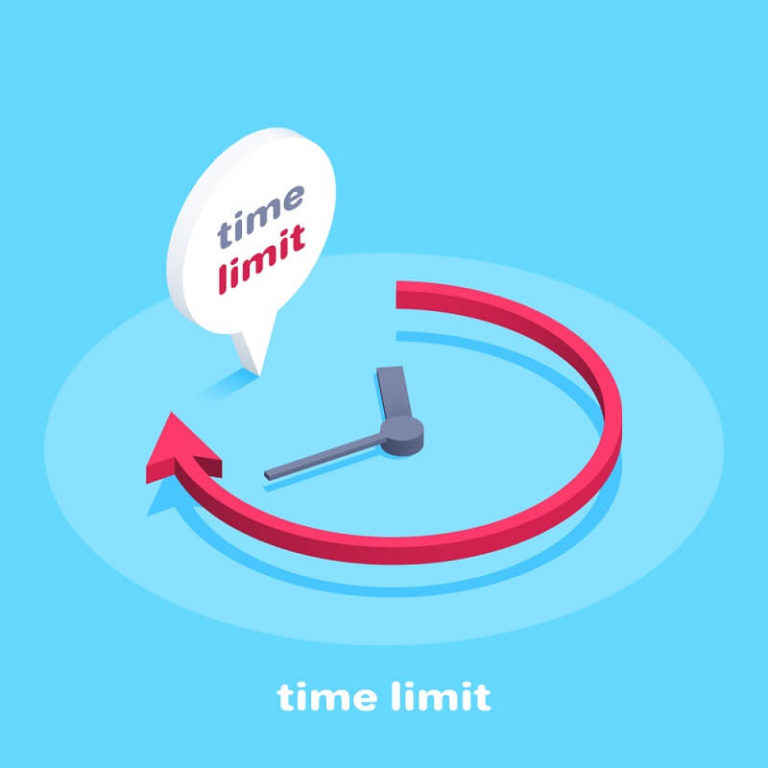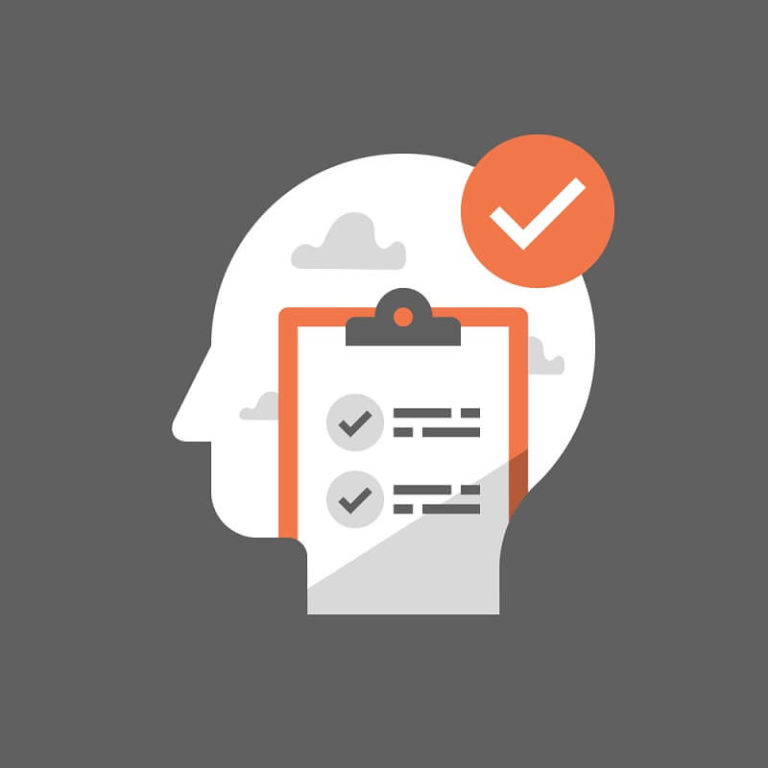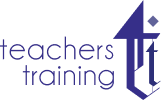Time management skills are a crucial skill that needs to be mastered by any professional in their field of work. It uplifts individuals in their professional and personal lives and gives them recognition for being timely and reliable. In this article, we will be discussing 21 tips for teachers to master time management skills. Therefore, if you are in the education field specifically, this blog is a must-read for you!
What is Time Management?
Time management is the ability to organise and plan how to divide your time between certain activities. It helps you segregate tasks and finish them accordingly in an allocated timeframe. You work on separate tasks very wisely and never lose focus. This results in you getting more things done in less time, even when time is tight and high pressures.

Conversely, failing to manage your time damages your effectiveness and causes stress. It can leave an adverse effect at your workplace as well. Because you will not be able to meet deadlines, finish specific tasks, or even reach up to your manager’s expectations. Bad time management also leaves a harmful effect on your studies. Failing to complete all assignments or tasks within a particular deadline leaves you with a bad grade.
Advantages of Time Management
You might wonder why one should focus on improving their time management skills instead of just focusing on their work or studies. Well, the answer is that a good time management ability brings in many advantages in your life. Excellent time management allows you to accomplish more extensive results in a shorter period, leading to more time freedom. The advantages of managing time include greater effectiveness and productivity with less stress. In addition, excellent time management at work means you can work less and achieve more significant results.
Practical time management skills increase your focus and raise productivity. It also reduces distractions and procrastination. Taking control of time through good time management skills increases your productivity. It also helps you get more of your important work done simply and easily.
To summarise this, there are a lot of advantages if you can manage time efficiently. Therefore, for a better understanding, we are mentioning below a list of reasons why time management is essential for everyone.
- Reduces stress level
- Better balance between work and personal life
- Increases focus
- Decreases procrastination
- Spreads positive energy
- More accomplishments
- Increased efficiency in tasks
- Increased participation in various activities
- More free time
- Greater chances of promotion
Master Time Management Skills – 21 Tips for Teachers
A teacher needs to focus on their time management skills proficiently. They need to balance both long and short-term goals of the classroom. Although, they often feel that it is impossible to fit everything into the time allocated between writing lesson plans, grading exams, and teaching.

With adequate time management skills, teachers can increase their productivity and provide a better education for their students. As a result, it will make things easier for their students since they are dependent on their teachers in terms of education and learning particular skills.
Keep reading to find out more about these tips on time management skills.
1. Avoid Procrastinations
Teachers find it more efficient to break upgrading materials into small groups graded each day than to grade the entire class’s work on the same day. Procrastination means delaying tasks by thinking, “I will finish this soon” or “I will finish this tomorrow.” As a result, a lot of work starts piling up. This creates a massive workload for the individual. Thus, they unconsciously create that workload for themselves.
Therefore, avoid piling on loads of grading assignments and working on one task at a time. Each day, a small pile is easier to manage and allows a teacher to evaluate the work and offer feedback to students properly. So, they should procrastinate less and finish a task as soon as they get time to finish them. In addition, teachers can experience a sense of accomplishment from each completed batch.
2. Prioritise Tasks
Prioritising tasks is about arranging workload based on the importance of the tasks and the resulting impact of the completed tasks. Teachers must assess whether projects can be put on hold if the outcomes are not as impactful as others. Priorities are not that basic as just focusing on one subject first and then the other.
Instead, it is segregating the tasks of the highest importance and setting the prioritising goal. On the other hand, an impactful art or outdoor activity can be just as stimulating as academic lesson plans within specific contexts. Thus, outdoor activities should also be prioritised sometimes, besides academic lessons.
3. Allocate Personal Time
A teacher has several tasks to look after. But it is also important for them to allocate their personal time. Prioritising time for individual needs is necessary to implement and execute the plans for educating students effectively.
The classroom may become less effective and efficient when teachers are exhausted due to less personal care and time. They need to take care of themselves more, have good leisure time, and spend more time with their loved ones.

As a result, they will remain more recharged. Therefore, teachers need to take measures to manage time for an effective classroom environment properly. Thus, time management is an essential part of providing quality education and meeting the needs of every student.
4. Be Prepared for any Potential Issues
Every individual should always be prepared for any potential threats or issues in the future. However, staying prepared or alert brings minor damage. Therefore, teachers should plan for potential problems before facing them. Because urgent problems can distract them from their goals. However, some issues have limited options, such as natural disasters. In this case, teachers can plan around the needs of students after the calamity occurs.

Teachers can create a plan to avoid triggers and stop distractions early by learning about students before they enter the classroom. They can do background research on every student in their class and create a different lesson plan for special students or those who need more help in their studies. For example, some students might be very violent due to medical problems, or some cannot take an extra load in their studies. So, teachers should have an idea of all the issues their students have and take appropriate approaches.
5. Plan Homework Strategically
Homework is essential to make sure students remain engaged in their studies even in the comfort of their own homes. Therefore, teachers should definitely make sure they give them adequate homework lessons to work on. Moreover, both teachers and students may find that repetitive-practice assignments such as mathematics problems from one particular topic are better suited for the home environment. Students should not be solving 10 similar equations during class time of the same topic.
Although, however, in-class training helps when framing and structuring problems, repetitive patterns during class may not be the best use of time. This is why homework is essential. But, the teachers should give the homework in a way that doesn’t make the students feel bored and feel like they have done this before. Instead, they can take strategic approaches, make sure the homework is more creative, and allow the student to perform some individual brainstorming to understand the topic more than just writing memorised things. This helps make the student more knowledgeable and enables them to research more on a particular topic taught in class.
6. Delegate Tasks
Task delegation is one of the hardest things to learn. But, all professionals need to know how and when to delegate a particular task, be it teachers, doctors, influential politicians, or business people. For example, when teachers can sense that the workload is piling up, they should come up with outcomes to finish those as quickly as they can. This is when task delegation plays a significant role. Teachers can select their assistants or class monitors to help them accomplish their tasks. They can make the selection based on merit, classroom performance, efficiency, and trustworthiness.

Task delegation ensures that you have erased some workload from your head and focus on other tasks. It helps you finish everything on time and allows you to give responsibility to others too. This would make them more confident and determined too. Your selected class monitors or assistants would also be able to upskill themselves if you trust them with your workload reduction. Moreover, task delegation would also give teachers some spare time to relax and focus on their personal lives. Thus, it will correlate to the previous time management tip discussed above- “Allocate Personal Time.”
7. Organise Your Work Station
To ensure that work is done effectively and more proactively, it is crucial to stay organised. Teachers need to ensure that the workstation they are performing all their responsibilities is not messy.

This means a running computer and internet system always available and an organised spreadsheet to put down tasks to do and record tasks completed. They should also make sure that the workstation is tidy. If the system is organised, the lesser time it takes to finish a task. A well-organised workstation kills less time and is also a very crucial tool in time management.
8. Look For Your Drawbacks
A lot of us don’t even realise how and when we waste time on things. These activities make us subconsciously kill unnecessary time. As a result, many of us are prey to time-wasters that steal time we could be using much more productively. So, look for your drawbacks that act as an obstruction in your time management.
Start by asking yourself open-ended questions. For example, do you spend too much time Internet surfing, scrolling through social media, reading emails, Instagram posting, YouTube surfing, texting, or making personal calls? Next, ask yourself, am I a time-waster? Tracking your daily activities will help form an accurate picture of how much time you spend on various activities. Therefore, this will act as an excellent step towards effective time management.
9. Set a Goal
Setting a particular goal applies to literally anything. Time management is no different. And you need to always keep in mind that the primary purpose of time management is changing your behaviours, not changing time. So, try to achieve that and kill all your time-wasting activities or minimise them at least.

For example, one week, set a goal that you’re not going to take personal phone calls or respond to nonwork-related text messages while you’re working. The following week, set a goal to procrastinate less and actually complete a task.
10. Make a Routine
To excel in time management skills efficiently, it is crucial to make a routine as well. While crises will arise, you’ll be much more productive if you can follow routines most of the time. For most teachers, creating and following a routine lets them get right down to the day’s tasks rather than frittering away time getting started. Making a routine also makes sure essential duties are done on time.
11. Set Time Limits for Tasks
Time limits are essential for all tasks. It helps you determine how much time will be required for each individual task. For example, you can allocate 1 hour to check the mathematics answer scripts from a test or spend time answering student or email inquiries.

During the next hour, you can focus on designing brainstorming activities to engage your students. Therefore, after assigning a timeframe for each task, make sure to stick to it. This practice would allow you to manage your time and finish all the necessary tasks in that allocated timings.
12. Don’t Be Available 24/7
Some teachers have a habit of being available for any support 24/7. This ends up in mixing their daily tasks and not being able to cope up with time. Undoubtedly, this creates a different support system for their students, but this also means that the teachers do not have sufficient family time. Thus, it is essential to focus on your own personal and family life and be available for your students only within the allocated school timings or during any extra support classes. Your students will also be more independent in that way and learn to solve their study-related problems.
13. Take Advantage of Golden Hours
Try to find out which time of the day makes you most productive. This practice will help to optimise your work against the clock. As a result, you will be able to finish the most amount of tasks during that particular time, also known as “golden hour.” Break your daily work time into 4-5 hours to find out your biological golden hour.
Then, try to analyse during which hour your mind was working more efficiently and get the most job done. You could track a week’s productivity using time tracking software or just record it manually in a sticky note or a notepad. Towards the weekend, identify the least productive and the most productive hours. Therefore, based on your results, try to finish the most difficult tasks in those golden hours.
14. Make a “Done” and “To-Do” List
No matter how brilliantly you plan your daily or weekly tasks, unexpected or urgent tasks can drop in at any time. In such a case, make a to-do list for these sudden tasks and then allocate the time accordingly. Then, by the end of a working day, check how much is left on your to-do list and how many tasks are marked as done on your list. This practice gives self-satisfaction and motivates you to harder.

15. Determine Desired Results
As a teacher, you will have to attend several meetings with guardians and your staff members to develop better learning outcomes for students and discuss their progress. Therefore, before these meetings, you can write down the specific desired results you expect to reach at the end of the session. This practice will justify the time and effort spent in meetings and help in time management and repetition of discussions.
16. Time Management Apps
Time management apps are the best way to utilise your time in the best possible way. They also help you to monitor your progress and figure out any drawbacks. This is because, once you start the time in the app, your brain automatically signals to begin working, and as a result, you procrastinate less. You straight away get into work mode. As a teacher, when you are checking homework or preparing lecture slides, these time management apps would help you track your work and help you finish them quickly.
17. Prevent Multitasking
Multitasking is not always required. However, it sometimes harms your work. In the worst-case scenario, you end up not completing any tasks. There can be distractions, and you can lose focus quickly.

For example, if you are to mark the answer scripts for both science and maths quizzes, refrain from doing these simultaneously by thinking that it would save time. Instead, you might get confused easily and end up spending more time in it. So, pick one task at a time to work on and provide the utmost efficiency in your work.
18. Don’t Aim for Perfection Always
Even though it is good to be a perfectionist, it is not always the best solution for time management. When you try to make everything perfect instead of just good or worth it, you spend a lot of unnecessary time on one particular task. That’s why you should try to give your best and be mindful of not putting too much time into one task.
19. Avoid Small Details Sometimes
Instead of making everything perfect and making everyone happy, try to keep the big picture in mind. You should focus more on your priorities, not the minor details of your work. So, try to address the essential tasks on your to-do list, and don’t worry too much about the little kinds of stuff.
20. Use a Calendar
Having a work calendar is the most fundamental step to managing your daily activities. If you use outlook or any digital notes, calendars come as part of your mailing software. Calendars are an excellent medium to remind you of any events or important tasks.
21. Say “No” if Necessary
Do not always accept tasks from others or the senior management if you already have too much on your plate. Don’t take on more than you can handle. A firm ‘no’ can save you from the excessive workload and be fair.
Conclusion

Time management skills are essential for everyone. The 21 tips for time management for teachers will help you be more proactive and efficient at your workplace. However, if you want to further boost your time management skills, you can enrol in our Effective Time Management Course. This course is entirely online and has been designed by experienced professionals.
FAQ - Frequently Asked Questions
Time management skills refer to the ability to organise and plan how you divide your time between different tasks. Strong time management ensures that you complete tasks efficiently, meet deadlines, and maintain a better work-life balance.
Several effective time management techniques include the Pomodoro Technique, which involves working in focused bursts followed by short breaks; the Eisenhower Matrix, which helps prioritise tasks based on urgency and importance; time blocking, which allocates specific time slots for tasks; and the 2-Minute Rule, which encourages completing quick tasks immediately.
For educators, strong time management skills can lead to more effective lesson planning, improved classroom management, and increased time for professional development. These skills enable teachers to balance their teaching responsibilities with administrative duties and personal commitments, ultimately enhancing their effectiveness in the classroom.
Yes, numerous tools and apps can assist with time management include digital calendars, such as Google Calendar, task management apps like Trello or Asana, and time-tracking software like Toggl. Traditional tools, such as diaries or planners, also help to organise your day effectively.
To teach time management skills to students, incorporate activities that promote planning and organisation, such as creating schedules, setting realistic goals, and using planners. Encouraging self-reflection on their time usage and providing practical exercises can also be highly beneficial.
Poor time management can lead to missed deadlines, heightened stress, diminished quality of work, and negative impacts on personal and professional relationships. It may also result in burnout and decreased motivation, ultimately affecting overall well-being.
Yes, good time management is known to reduce stress by helping you manage deadlines better, avoid last-minute rushes, and maintain a balanced workload. When you allocate time efficiently, you feel more in control of your tasks.
Recent Posts
- Mandatory Compliance Training for UK Teachers: Why It’s Essential for Your Career
- What is the Level 3 AET and Who is it For?
- How to Get Qualified as a Teacher in the UK: A Quick Guide
- British Sign Language: Bridging Communication and Inclusion
- Are Teachers Born Leaders?
- 5 Reasons to Get PRINCE2 Foundation Certified
- What is an A1 Assessor Qualification, and What Has Taken Its Place?
- Leadership and Management: A Winning Combination
- Mastering Copywriting Skills: The Art of Persuasion (and Procrastination)
- How to Become An Assessor?





